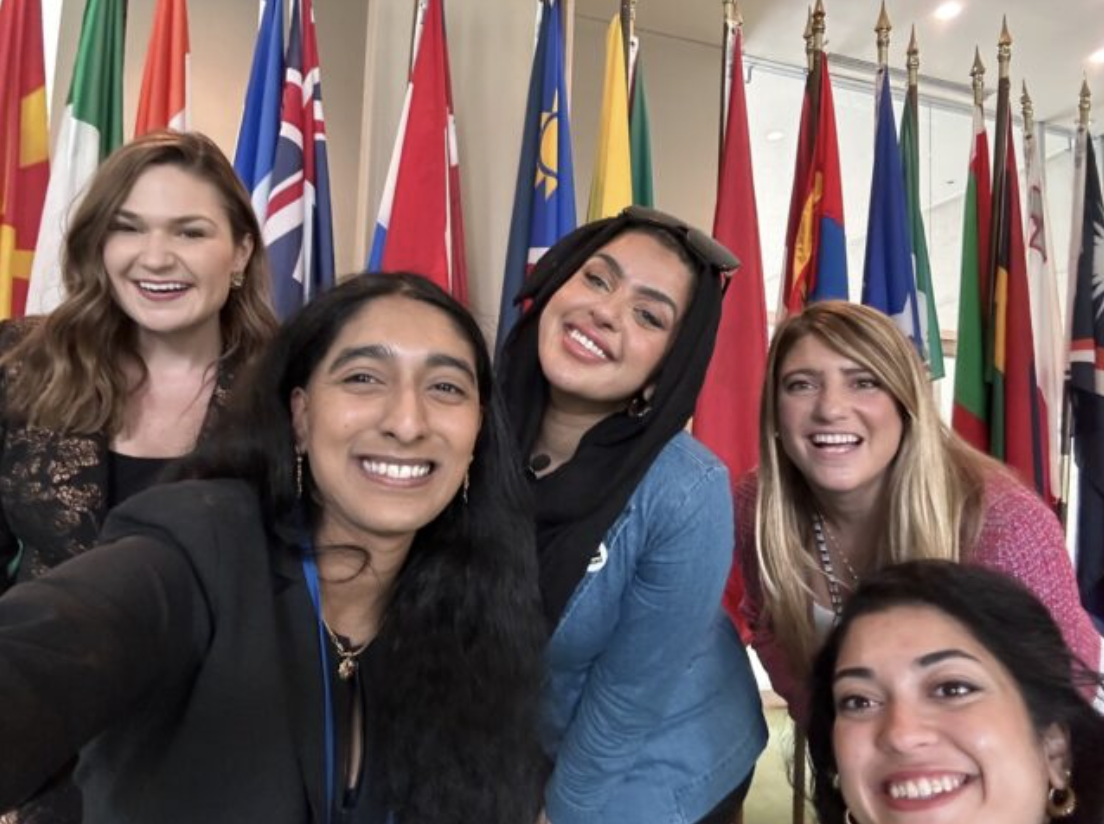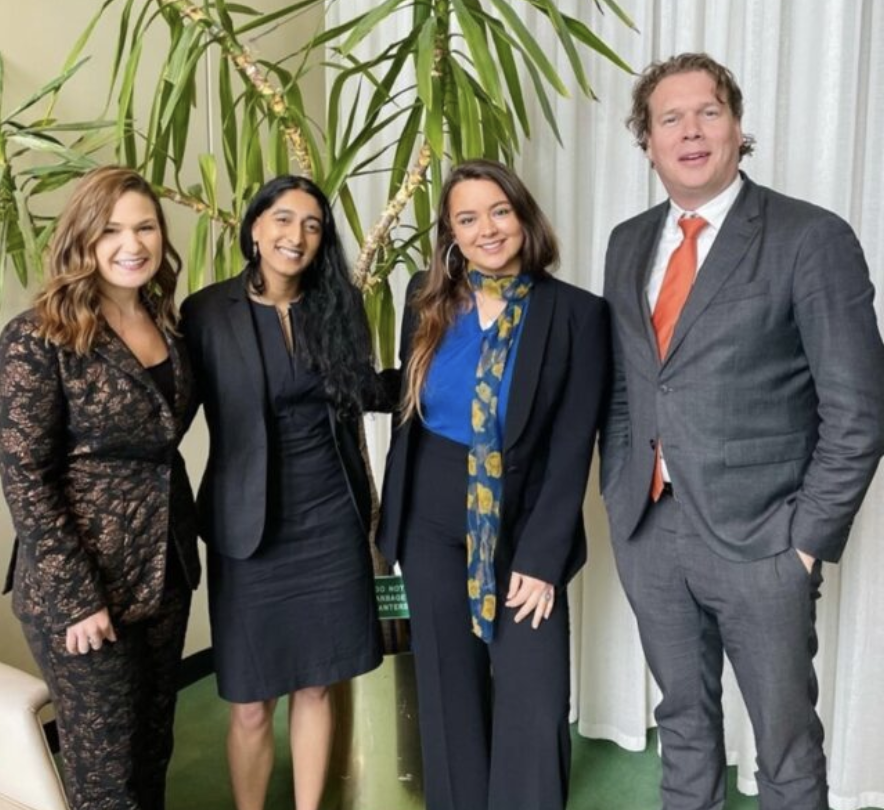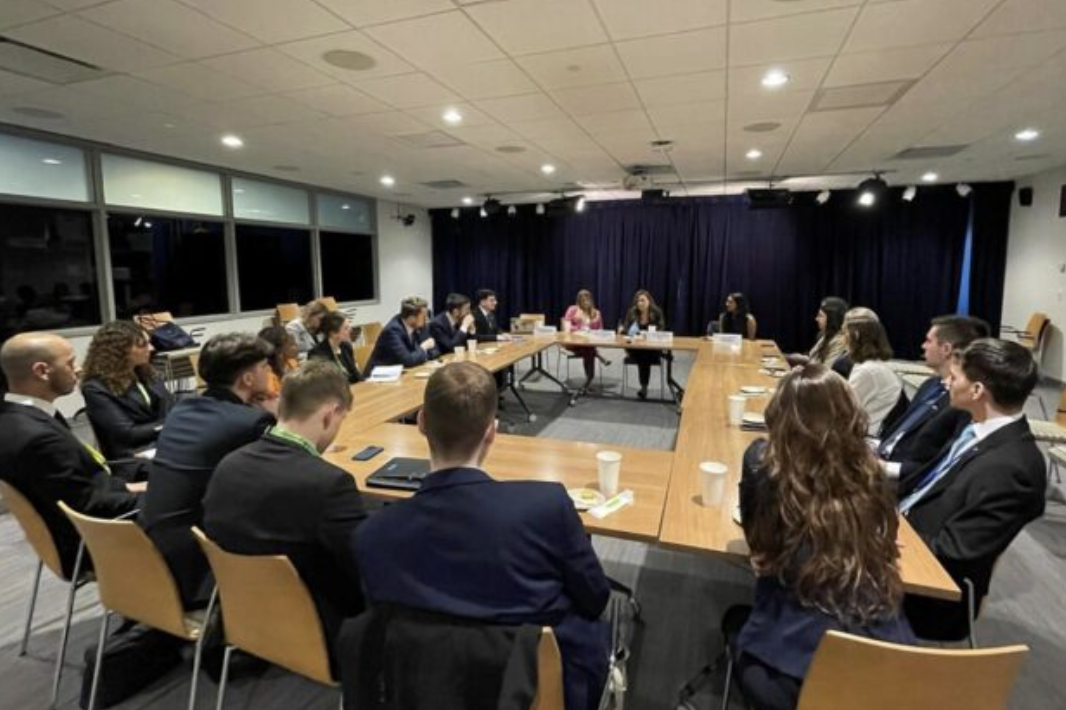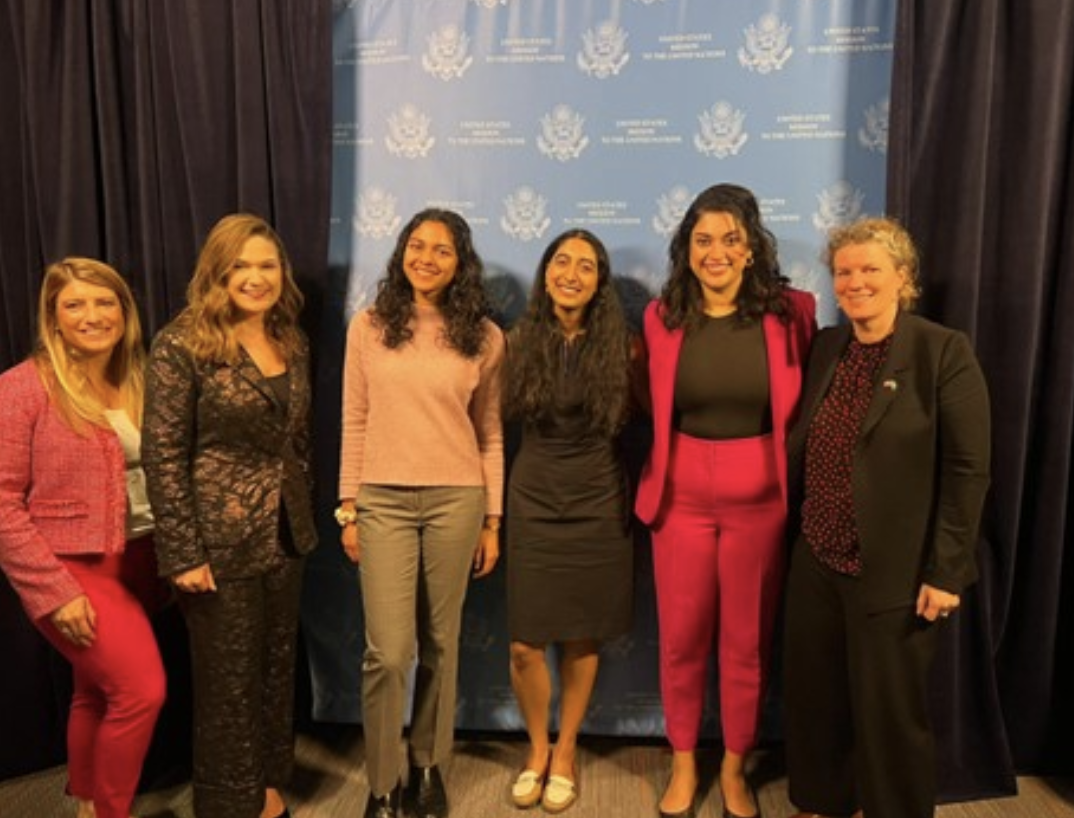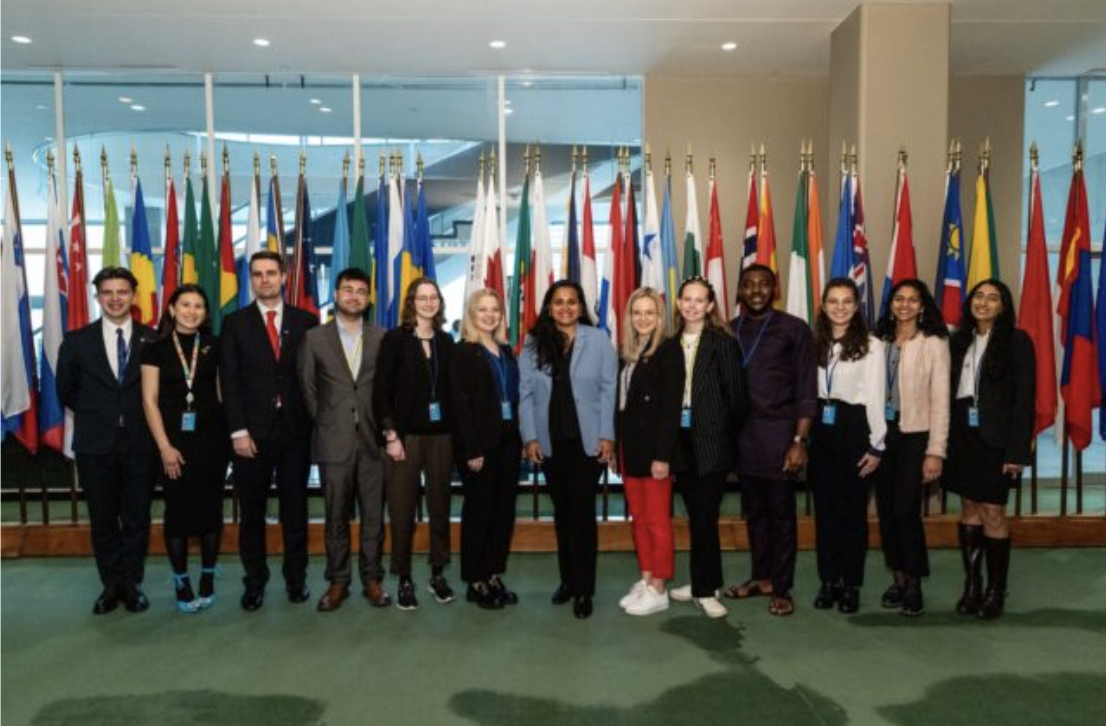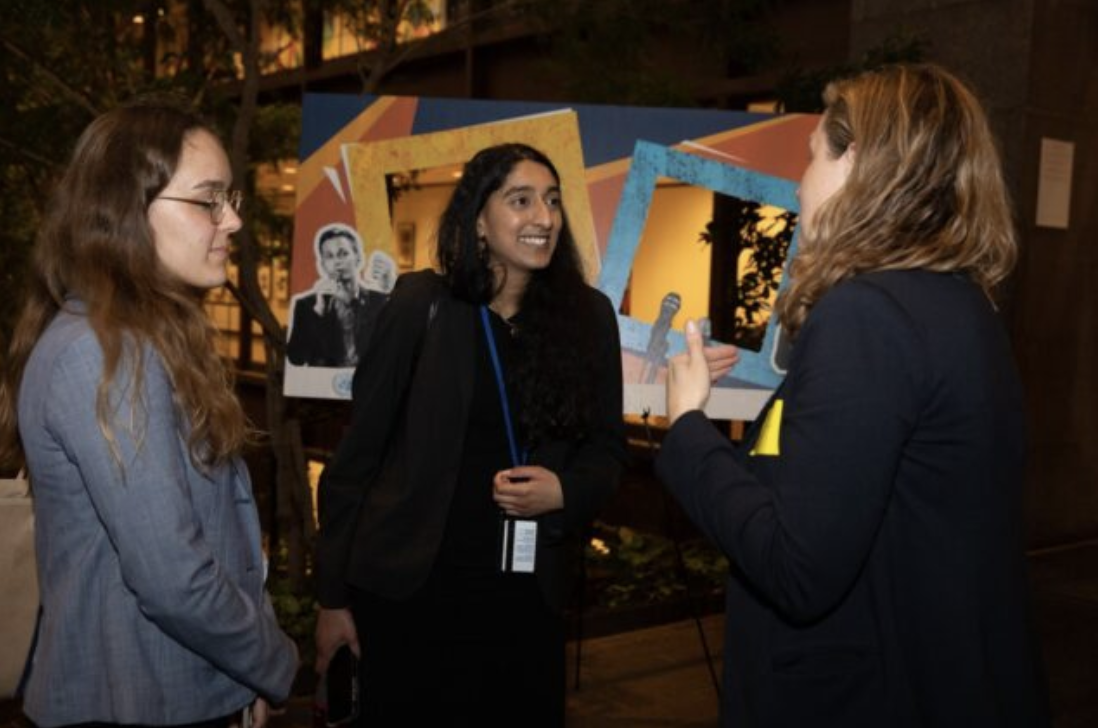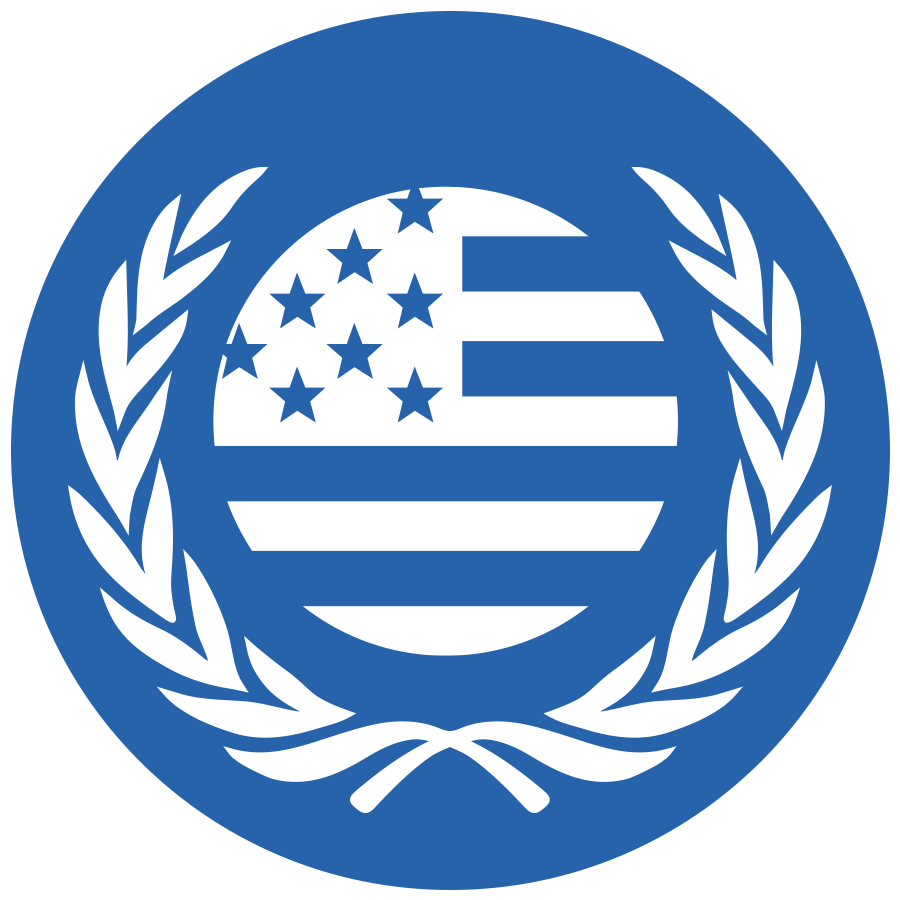My Experience as a U.S. Public Delegate for the 2023 ECOSOC Youth Forum
Photo Credit: Office of US Ambassador Linda Thomas-Greenfield to the UN
“Meaningful youth representation will only come when we have meaningful youth leadership.”
Guest post from UNA-USA Youth Observer to the United Nations, Himaja Nagireddy:
“This year, I attended the annual UN Economic and Social Council (ECOSOC) Youth Forum as an Advisor in the U.S. Delegation from April 25-27. Being a youth delegate on our all-women team and working to affirm our country’s commitments to supporting and fostering youth leadership in human rights and the Global Goals was an incredible experience.
The ECOSOC Youth Forum empowers hundreds of young people to directly engage with UN Member States, UN officials, and others to share concerns, ideas, and recommendations for improving the monitoring, review, and implementation of the Sustainable Development Goals (SDGs). The Youth Forum precedes the UN High Political Forum on Sustainable Development (HLPF) in July and the SDG Summit at the 78th Session of the UN General Assembly (UNGA) in September. It was convened by the President of ECOSOC Lachezara Stoeva, the Major Group for Children and Youth (MGCY), and the International Coordination Meeting of Youth Organizations (ICMYO). The Forum was co-organized by the UN Department of Economic and Social Affairs (DESA) and the Office of the Secretary-General’s Envoy on Youth (OSGEY). This year, over 800 people attended the Forum in-person and thousands more joined online.
This year’s theme for the ECOSOC Youth Forum convened around “Accelerating the recovery from COVID-19 and the full implementation of the 2030 Agenda for Sustainable Development at all Levels”. Five SDGs will be undergoing specific review at the HLPF this year and thus were focal points at the Youth Forum: SDG 6 (Clean Water and Sanitation), SDG 7 (Affordable and Clean Energy), SDG 9 (Industry, Innovation, and Infrastructure), SDG 11 (Sustainable Cities and Communities), and SDG 17 (Partnerships for the Goals).
The U.S. Delegation was led by USUN Ambassador Linda Thomas-Greenfield and comprised of representatives from the State Department, the US Mission to the UN and the public and NGO community
Abby Finkenauer, Special Envoy for Global Youth Issues, U.S. Department of State (DOS) took the lead as our main expert and representative in the plenary and bilateral meetings for the delegation and Youth delegates. Anushka Srivastava and myself, spoke on behalf of the U.S. government at the UN and in a variety of virtual and in person meetings. (Other delegation representatives included Alexandra Nemeth, Deputy Special Envoy for Global Youth Issues (DOS); Megha Bhattacharya, Advisor for Strategic Communication, Office of the Special Envoy for Global Youth Issues (DOS); Kara Eyrich, ECOSOC Advisor, US Mission to the UN; Erin Tyler, Public Diplomacy Officer (DOS).
Being part of this team was incredibly affirming because we worked to address critical youth issues – this showed in our delegation’s remarks on the floor of the Trusteeship Chamber during the Ministerial session. We spoke about the importance of inclusive youth civic engagement and removing barriers to running for office. We also highlighted key findings and stories from the 2022 American Youth Priorities Report, making the call for more intergenerational leadership.
Hearing statements from the diverse perspectives of delegations present and taking part in bilateral meetings was also an amazing opportunity. These sessions were a chance for our delegation to gather best practices and find similarities in our goals and work, paving the way for powerful partnerships. Such partnerships are key to strategically collaborating – and informally holding each other accountable – on our commitments to uplifting youth leadership in global policy. For me, learning about these different avenues for taking this work beyond the walls of UN Headquarters, long after our brief interaction at this Forum, was the most impactful takeaway.
While the ECOSOC Youth Forum was an incredible experience, there were substantial issues, some of which are listed:
Many delegations did not have a youth delegate.
The youth delegates that were there, myself included, were predominantly from wealthier nations with more privileged backgrounds. Representation was heavily lacking.
While the ECOSOC Youth Forum was hybrid, drastically improving overall participation, the events heavily favored and supported engagement for those attending in person.
The side events I was able to attend fostered some of the most enriching discussions and feedback-gathering processes I have ever taken part in. That said, delegations did not prioritize attending these events, many of which were hosted by civil society.
Young people are worried about the impact they can have at the upcoming HLPF and SDG Summit. Many of the young people at the Forum felt hopeless that their recommendations would not have any tangible impact and noted significant participation barriers that will likely prevent inclusive representation at these events.
Observing these gaps for myself and listening to these concerns from my peers at the Youth Forum was eye-opening. It reinforced how lucky I was to be there, and made me realize the enormous amount of responsibility we carry as people who can get in the door. At a minimum, it is crucial that we commit to improving representation by unapologetically uplifting the voices of those in our community who have the least say and are the most impacted by the work of the UN. But we need to go further. As Ambassador Thomas-Greenfield said, we need to make sure that young people aren’t just at the decision-making table – but are at the head of it. Meaningful youth representation will only come when we have meaningful youth leadership. I left feeling so inspired by people like Special Envoy Abby Finkenauer who, by example, demonstrates the power young people have to catalyze and lead global change. It made me realize that we all have a responsibility – to each other, and to ourselves – to find, build, and channel our power for creating a more equal and just world.”
